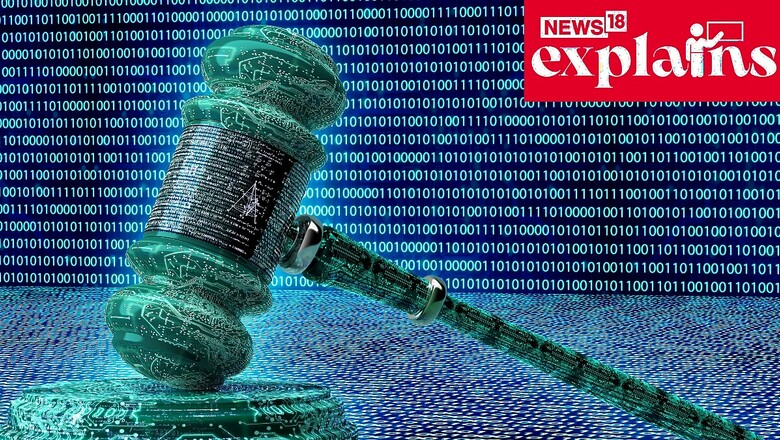
views
Union Minister for Electronics and IT Ashwini Vaishnaw presented the much-awaited Digital Personal Data Protection Bill 2023 in Lok Sabha on Thursday, followed shortly by Opposition MPs objecting to the proposed legislation bill by highlighting the Puttaswamy judgment.
The Opposition contended that the bill should be referred to the Parliamentary Standing Committee for further discussion since it is a critical bill and affects every citizen of the country. Vaishnaw, however, stated that the government is ready to discuss it, including concerns like the alleged violation of the Puttaswamy judgment.
Pavan Duggal, Supreme Court lawyer and cybersecurity expert, told News18 the Puttaswamy case talks about the Right to Privacy as a fundamental right, including personal and data privacy.
“The fact is that the Digital Personal Data Protection Bill (DPDPB) has to comply with the parameters given to the Puttaswamy case on privacy. Additionally, there were many gaps in the DPDPB draft 2022 that needed attention and we are yet to go through the final version of the 2023 draft. But the Puttaswamy case will have a direct impact on this kind of legislation and it is important that the government should ensure that the principals of Puttaswamy judgment should reflect in the new legislation,” he said.
What is the Puttaswamy Case?
It was a landmark legal case that established Right to Privacy as a fundamental right under the Indian Constitution in 2017. The case was brought before a nine-judge bench of the Supreme Court in response to questions regarding the legal validity of the Aadhaar database, which raised the issue of whether the right to privacy was constitutionally protected. The case was filed by Justice KS Puttaswamy and others.
The Attorney General, representing the state, argued that the right to privacy was not explicitly recognised as a fundamental right based on two earlier cases — MP Sharma vs Satish Chandra and Kharak Singh vs State of Uttar Pradesh. These cases, decided by an eight-judge Bench and a six-judge bench, respectively, did not explicitly affirm the right to privacy as a fundamental right. However, subsequent judgments by smaller benches recognised the right to privacy as a fundamental right, creating ambiguity and the need for clarity on the matter.
The nine-judge bench, after considering the precedents and the significance of the right to privacy, unanimously reaffirmed that the right to privacy is indeed protected as an integral part of the ‘Right to Life and Personal Liberty’ under Article 21 of the Indian Constitution.
It also noted that privacy is an intrinsic aspect of dignity, autonomy, and liberty, essential for preserving the various fundamental rights guaranteed in Part III of the Constitution.
The case not only established the right to privacy as a fundamental right but also overruled the previous judgments in MP Sharma and Kharak Singh cases that had held otherwise. This decision clarified and solidified the place of the right to privacy in Indian jurisprudence.
Furthermore, the case highlighted the need for a new law related to data privacy, recognising the importance of protecting individuals’ personal data. It also expanded the scope of privacy in personal spaces, acknowledging that privacy is not limited to physical boundaries but encompasses various aspects of an individual’s life. Additionally, the case discussed privacy as an intrinsic value, affirming its significance and relevance in contemporary society.
At that time, then Chief Justice of India Sharad Arvind Bobde said: “The right to privacy is inextricably bound up with all exercises of human liberty – both as it is specifically enumerated across Part III, and as it is guaranteed in the residue under Article 21. It is distributed across the various articles in Part III and, mutatis mutandis, takes the form of whichever of their enjoyment its violation curtails.”




















Comments
0 comment